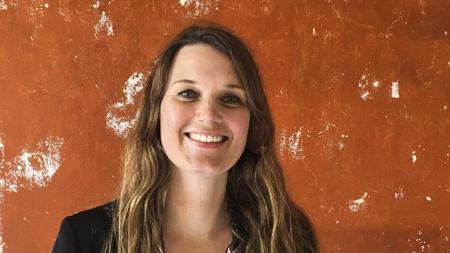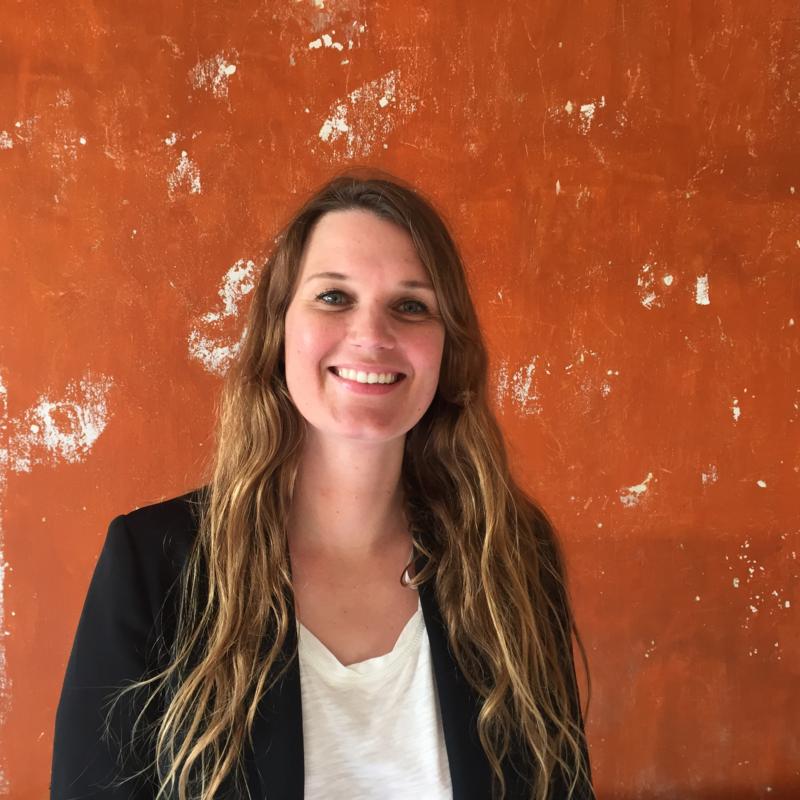Based in Copenhagen since 2006, German-born producer Katja Adomeit has lately garnered attention for her work on such co-productions as Ruben Östlund's Force Majeure, as well as distinctly independent productions of her own such as Daniel Joseph Borgman's The Weight of Elephants and Anna Eborn's Pine Ridge. Respectively a New Zealand-set drama and a documentary about the Lakota reservation in South Dakota, both films steer decidedly keen, fresh courses through their material.
"Peter Aalbæk Jensen invited me for an interview and told me: 'Learn Danish and you’ll get a job'. So a week later I moved to Denmark and spent 13 hours a day learning the language."
On the back of them Adomeit was named one of Screen International's "Future Leaders" in 2013, and she continues to forge productive relationships with new talents and find stories in locations all over the world.
Zentropa Paved the Way
After studies in Hamburg Katja Adomeit took up an internship in New Zealand in 2004. She later moved back to Berlin – "but every time I move to Germany I get 'away sickness'," she says. So she worked there for six months while applying to every production company in the world that she could imagine working for. The only one that answered was Zentropa.
"Peter Aalbæk Jensen, the studio's co-founder, invited me for an interview and told me: 'Learn Danish and you'll get a job'," she remembers. "So a week later I moved to Denmark and spent 13 hours a day learning the language and went back to him after three months to ask for the job."
That was 2006. She worked for the next year at Zentropa as Aalbæk Jensen's personal assistant, then as producer-assistant for Meta Louise Foldager, producer of Lars von Trier's latterday movies, graduating to post-production coordinator then junior producer. In her spare time she cut her teeth producing short films, notably nurturing ongoing relationships with Borgman, whom she met in New Zealand, and Eborn from Sweden. Borgman's Lars & Peter competed for the 2009 Short Film Palme d'Or at Cannes, and the following year his Berik won the Grand Prix Award in the festival's Critics' Week, and was nominated for a European Film Award.

Duly bolstered, Adomeit set up her own production company, Adomeit Film, in 2011, though she continues to keep her office at Zentropa's Filmbyen compound. "It's home for me," she says. She also freelances for Philippe Bober's intrepid production and sales boutique Coproduction Office, running its Danish office. It was through that connection that she came to co-produce Östlund's 2014 Cannes hit Force Majeure, overseeing its post-production in Copenhagen.
Looking for Lighter Ways of Producing
Adomeit describes her mode of film producing as being "the wall" a director/screenwriter can lean on "whenever they need something, whatever that may be, from beginning to end." She's proud of all her productions: "When I'm producing I'm always like, 'This is amazing'. I guess I love the teamwork, joining together on something that we're going to make no matter what. It's us against the world, and with the world, and with financing from all over the world.
"My role is about writing lots of applications, finding money and the crew, but also about creative input, finding new ideas and the right process of development and production," she continues. "I'm all about finding non-traditional methods that can be low-budget or cost-efficient while also forming a more creative environment. It's looking for a lighter way that can also make the final product more creative and original. I hate sets full of make-up and lighting people and grips. It's incredibly boring and not about making a new kind of film anymore."
Experimenting with the Directors
Her collaboration with Eborn on Pine Ridge illustrates the kind of fluid, experimental process and outcome that she leans towards. The film emerged from another project they had been researching about a Lakota American who had married and moved to a small village in Russia.
The place he had left was South Dakota's Pine Ridge reservation, in one of the poorest counties in America, and Adomeit sent Eborn and cinematographer Nadim Carlsen off there to research it further. The result is a multi-character prism on a corner of America steeped, if not smothered, in a history of struggle and strife, which premiered in Venice and won the Gothenburg Film Festiva's Dragon Award for Best Nordic Documentary.

Pine Ridge was edited "in cinema," in Adomeit's words: "Anna does her own editing, so we sat there in the evenings at the edit suite in Zentropa, and we could hook ourselves up to the cinema to watch what we'd edit. The film has these very small details you can only experience on the big screen, so we'd watch in cinema, go back to the edit suite to edit some more, go back to the cinema to watch, and so on. We didn't need anyone else. It's a completely different way of working. Anna is really patient with her material – she sifts through all her interviews again and again, which would be pretty difficult with an editor, if you have 60 hours of material."
Their next film, Lida, resumes the Russian theme with its portrait of a late Swedish woman in the Ukraine, one of the very last of an expat community deported by Catherine the Great. "She speaks Swedish as if it's the year 1800," as Adomeit says. With Borgman, she is producing Across the Fields, a "process-driven" experimental project about an intellectually challenged 60-year-old woman who lives with her mother – a real character for whom they did a casting search, and whom they're asking to play scenes with a "fictional end-result."
Semi-fictional Stories from Kabul
Adomeit is equally excited about another collaboration, with the young Afghan director Shahrbanoo Sadat, who in 2011 became the youngest ever inductee into Cannes' Cinéfondation Residency at the age of 21. They were teamed up the following year by CPH:LAB, the talent programme established by the CPH:DOX festival in Copenhagen. Sadat just shaved off her hair in protest at the Afghan practice of rejecting brides for non-virginity: "She’s 1'50”", I'm 1'80", she stands in front of me with her shaved head, tells me this story, and I feel, I've just fallen in love with this person and there's no way she will make a film without me for the rest of her life – seriously!

They co-directed the semi-fictional Not at Home within eight months of that meeting – Sadat shooting amidst the different generations of a family in Kabul, Adomeit in a refugee centre in Germany. Last year they crowdfunded Wolf and Sheep, the first of five interlinked features Sadat has outlined for one continous character, which will shoot in her own central-Afghanistan village this coming August. Having built a crowdfunding community and recognising its potential for the subsequent projects, Adomeit now has her doubts about this on-trend fundraising innovation, which turns out to add a weight of its own.
"It was just the director, me and one-and-a-half assistants working full-time for two months," she remembers. "Even so, every day you wake up and think: today I have to ask 200 people if they want to give a small amount.
Non-traditional but not so lightweight, it seems to fail the Adomeit test – but you wouldn't bet against her reformulating the rules of crowdfunding, too.
Katja Adomeit is selected as one of twenty emerging European producers ready to network under the Producers on the Move initiative during the Cannes Festival.

